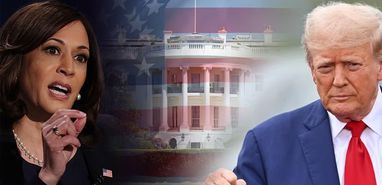
The CHIPS Act: Strategic Re-shoring of Semiconductor Production
The CHIPS Act represents the Biden administration’s flagship reform aimed at restoring semiconductor manufacturing to U.S. soil, backed by $39 billion in federal grants and subsidies, in addition to billions more for loans and R&D. Major players such as Intel, TSMC, Samsung, and Micron have qualified for these incentives, and if successful, this initiative could enable the U.S. to generate nearly 28% of the global supply of advanced semiconductor chips by 2032, as opposed to the negligible share produced today.
The Harris campaign views this as a vital step toward economic sovereignty and national security, citing the strategic importance of bolstering U.S.-based semiconductor production. In contrast, the Trump campaign has expressed some reservations. Trump recently critiqued the CHIPS Act as “deeply flawed,” suggesting that his administration would review the initiative if elected. Though House Speaker Mike Johnson later clarified remarks about “reversing” the Act, this exchange illustrates the potential for significant shifts in policy under a Trump-led administration.
Cryptocurrency and Central Bank Digital Currency (CBDC) Stances
The Biden administration’s approach to cryptocurrency has emphasized regulation, with the SEC taking an enforcement-heavy approach, resulting in multiple lawsuits. Yet, a well-defined regulatory framework delineating securities from commodities has been elusive, leaving the industry in a state of uncertainty.
While both Trump and Harris have shown openness to digital currency, Trump has embraced the crypto sector more overtly. His campaign now accepts Bitcoin, Ether, and other prominent cryptocurrencies for donations, positioning digital currency as a hedge against the adoption of CBDCs. Trump has pledged to establish a strategic Bitcoin reserve, branding himself as the “pro-crypto” candidate and appealing to proponents of decentralized finance.
Big Tech and Antitrust Movements
Both campaigns have acknowledged the influence of Big Tech, with Trump’s DOJ and FTC initially launching antitrust cases against Google and Meta. Under Biden, these efforts expanded, with additional antitrust actions targeting Amazon and Apple, along with a second case against Google. Recently, a judge’s ruling that Google holds monopoly status has intensified speculation about potential corporate breakups.
A Harris administration is expected to continue this antitrust scrutiny of major tech firms. Trump’s approach, however, is more circumspect. While he stated he would “do something” about Google’s monopolistic power, he refrained from advocating for a breakup, cautioning that dismantling the company could disproportionately benefit international competitors, especially in China.
Data Privacy and Censorship
Trump has supported the growth of alternative social media platforms but maintains a hardline stance against TikTok, a position mirrored across party lines due to concerns about Chinese data access. Recently, the Biden administration mandated that ByteDance, TikTok’s parent company, divest its U.S. holdings by April 2025 or face a ban.
A Trump administration would likely favor non-mainstream social media platforms while restricting foreign-based apps like TikTok, prioritizing national security concerns. Harris, while less vocal on alternative platforms, would likely adhere to Biden’s current policy on privacy and censorship.
Artificial Intelligence and Ethical Oversight
Vice President Harris has demonstrated a proactive interest in Artificial Intelligence, calling it a “moment of significant potential” at the 2023 Summit on AI Safety. The Biden administration’s AI-focused executive order emphasizes advancing AI technology while incorporating safeguards, an approach the Harris administration is expected to maintain.
Trump’s stance diverges, as his campaign critiqued Biden’s executive order for allegedly promoting “radical” ideals. The Trump camp advocates a more measured approach to AI, supporting its growth while protecting free speech and human well-being.
Electric Vehicles (EV) and Sustainable Incentives
The Biden administration’s Inflation Reduction Act has catalyzed EV sales by introducing a $7,500 tax credit for qualifying electric vehicles. Harris would likely uphold this pro-EV stance, encouraging sustainable energy and reduced emissions.
Trump, on the other hand, has voiced strong disapproval of battery-powered vehicles, proposing eased emissions limits and imposing a 60% tariff on Chinese imports, alongside a general 10-20% tariff on other imports. While this could hinder the availability of Chinese-made EVs, it might benefit U.S.-based manufacturers, including Tesla. It is worth noting Elon Musk’s public support for Trump; Musk’s influence could help moderate any policy that may directly harm the U.S. EV industry.
Concluding Thoughts
The landscape of U.S. technology policy hangs in the balance as voters prepare to decide between two starkly different visions. The Trump administration’s deregulatory approach favors free-market dynamics, whereas Harris supports more rigorous oversight and targeted government interventions. As Election Day nears, it is essential for voters to consider how these differing tech strategies align with their personal beliefs and the future they envision for American innovation.








By Andrej Kovacevic
Updated on 9th March 2025